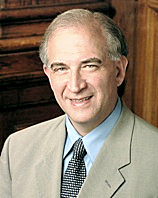Amended FDA Protocol Submitted for Phase 2b Trial of Advanced Alzheimer’s Therapy
Written by |

 Neurotrope BioScience has submitted an amended protocol to the U.S. Food and Drug Administration (FDA) for a Phase 2b clinical trial of its lead product candidate bryostatin-1 for treating advanced Alzheimer’s disease.
Neurotrope BioScience has submitted an amended protocol to the U.S. Food and Drug Administration (FDA) for a Phase 2b clinical trial of its lead product candidate bryostatin-1 for treating advanced Alzheimer’s disease.
The company said in a press release that in the original trial protocol, the primary efficacy outcome is at week 13, unchanged with this amendment, and the trial’s primary efficacy endpoint remains based on the Severe Impairment Battery scale assessment that is widely used in Alzheimer’s disease drug trials.
Secondary efficacy endpoints will include “Activities of Daily Living,” “Neuropsychiatric Inventory,” and “Mini-Mental State Exam.”
However, under the amendment submitted, Neurotrope BioScience — a subsidiary of New York-based Neurotrope Inc. — now expects to be able to report top-line trial data in the early spring of 2017.
The clinical trial’s original protocol was designed to evaluate the safety and efficacy of bryostatin-1 compared to a placebo at two doses — 20 micrograms or 40 micrograms, which would be followed by seven doses administered over a 12-week period and a primary efficacy evaluation at week 13.
A second study interval of 12 weeks was to immediately follow the 13-week primary evaluation for exploratory purposes, with patients in the groups receiving bryostatin-1 re-randomized to receive either dose while patients in the placebo arm were re-randomized to receive either 10 micrograms of bryostatin-1 or a placebo.
The protocol amendment submitted to the FDA eliminates the second study period, which will allow the final analysis to be conducted immediately following the primary efficacy evaluation after week 13. The treatment of subjects who have already started the second study period will be discontinued, and all subjects will receive a final evaluation 30 days after their last dose of the study drug.
 “Eliminating the second randomization enables an earlier completion of the study, accelerates planning of future studies and does result in a significant cost and time savings,” Dr. Daniel Alkon of BRNI, Neurotrope’s chief scientific officer, said in the press release.
“Eliminating the second randomization enables an earlier completion of the study, accelerates planning of future studies and does result in a significant cost and time savings,” Dr. Daniel Alkon of BRNI, Neurotrope’s chief scientific officer, said in the press release.
“The study remains blinded without any interim data analysis performed. This decision was made solely to accelerate the evaluation and clinical development of bryostatin,” he said, adding researchers are excited about getting the final trial data earlier than they had expected.
Bryostatin-1, Neurotrope’s lead drug product candidate, is a natural protein kinase C (PKC) isozyme which has been demonstrated in Alzheimer’s mouse models to stimulate repair of damaged synapses and synaptogenesis, reduction of toxic beta-amyloid generation, and enhancement of memory and learning, offering the potential to improve cognition and behavior in Alzheimer’s patients.
Compared to the traditional Alzheimer’s research focus on removal of amyloid plaque and Tau pathology in the brain, which has resulted in many failed clinical trials, Neurotrope has initiated a novel approach by activating specific PKC isozomes using bryostatin, a natural product, in mouse models.
The animal studies show that PKCe, when stimulated, initiates a cascade of enzymatic events, ultimately improving synaptic function, inducing formation of new synapses, and inhibiting cell death. Stimulation of PKCs is far upstream of plaque and tangle formation, which Neurotrope suggests may be considered pathologic markers of Alzheimer’s, rather than the cause of the disease. Company researchers report that as a potent modulator of PKCe at low doses, bryostatin has been shown to stimulate this key enzyme, showing potential promise in restoring memory and learning function.
Neurotrope is also conducting preclinical studies of bryostatin-1 as a treatment for the FDA orphan drug diseases Fragile X Syndrome and Niemann-Pick Type C disease (NPC), two rare genetic diseases for which there are currently no cures.
Neurotrope has exclusively licensed technology from the Blanchette Rockefeller Neurosciences Institute for Alzheimer’s disease and Fragile X Syndrome, has a global exclusive license with the Icahn School of Medicine at Mt. Sinai for Niemann-Pick Type C disease, and is partnered with Stanford University to synthesize and find the next generation synthetic compounds called bryologs, designed to mimic the naturally-occurring bryostatin.





